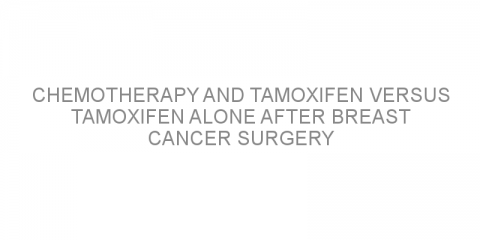In a nutshell The present study examined the duration of urinary-related side effects resulting from radiation therapy. Mild to severe urinary side effects were found to last up to 10 years post radiation therapy. Some background Prostate cancer is a slow growing form of cancer that is often managed by active surveillance or observation (delayed...
Read MoreTreatment(s) now being considered-Hormonal therapy Posts on Medivizor
Evaluating survival rates in patients with prostate cancer treated with low-dose-rate brachytherapy
In a nutshell The present study evaluated survival rates in patients with prostate cancer (PC) treated with Low-dose-rate prostate brachytherapy (LDR-PB). The main findings were that LDR-PB alone or combined with hormone therapy offers excellent survival in PC patients. Some background Prostate cancer is the most common type of cancer in men....
Read MorePreserving Fertility during Cancer Treatment
In a nutshell This paper reviews available options for having children after cancer treatment. The main conclusion is that sperm, egg and embryo preservation techniques can help young women have children after breast cancer treatment. Alternative options, such as ovarian tissue preservation, are also being developed. Some background...
Read MoreExtended versus Targeted Lymph Node Surgery for Invasive Breast Cancer
In a nutshell This study compared survival rates for two surgical strategies in treating invasive breast cancer. The main finding was that the targeted Sentinel Lymph Node Dissection (SLND) procedure was just as effective as the traditional Axillary Lymph Node Dissection (ALND) surgery. Some background Lymph from the breast drains...
Read MoreChemotherapy and Tamoxifen versus Tamoxifen alone after Breast Cancer Surgery
In a nutshell In this study chemotherapy and Tamoxifen were compared to Tamoxifen alone as complementary treatments after surgery for breast cancer. The main finding was that better results are obtained by adding chemotherapy. Some background Tamoxifen is a drug used for tumors which require the female hormone estrogen to grow. It...
Read MoreFocal Ultrasound-based therapy for prostate cancer as means to reduced genito-urinary side effects
In a nutshell This study evaluated whether focal Ultrasound-based therapy of individual cancer lesions can minimize the side effects associated with radical therapy that involves the whole prostate gland. Main findings: Focused therapy directed into cancer tissues significantly reduces genitourinary side effects like urine-leakage and impotence. Some...
Read More








